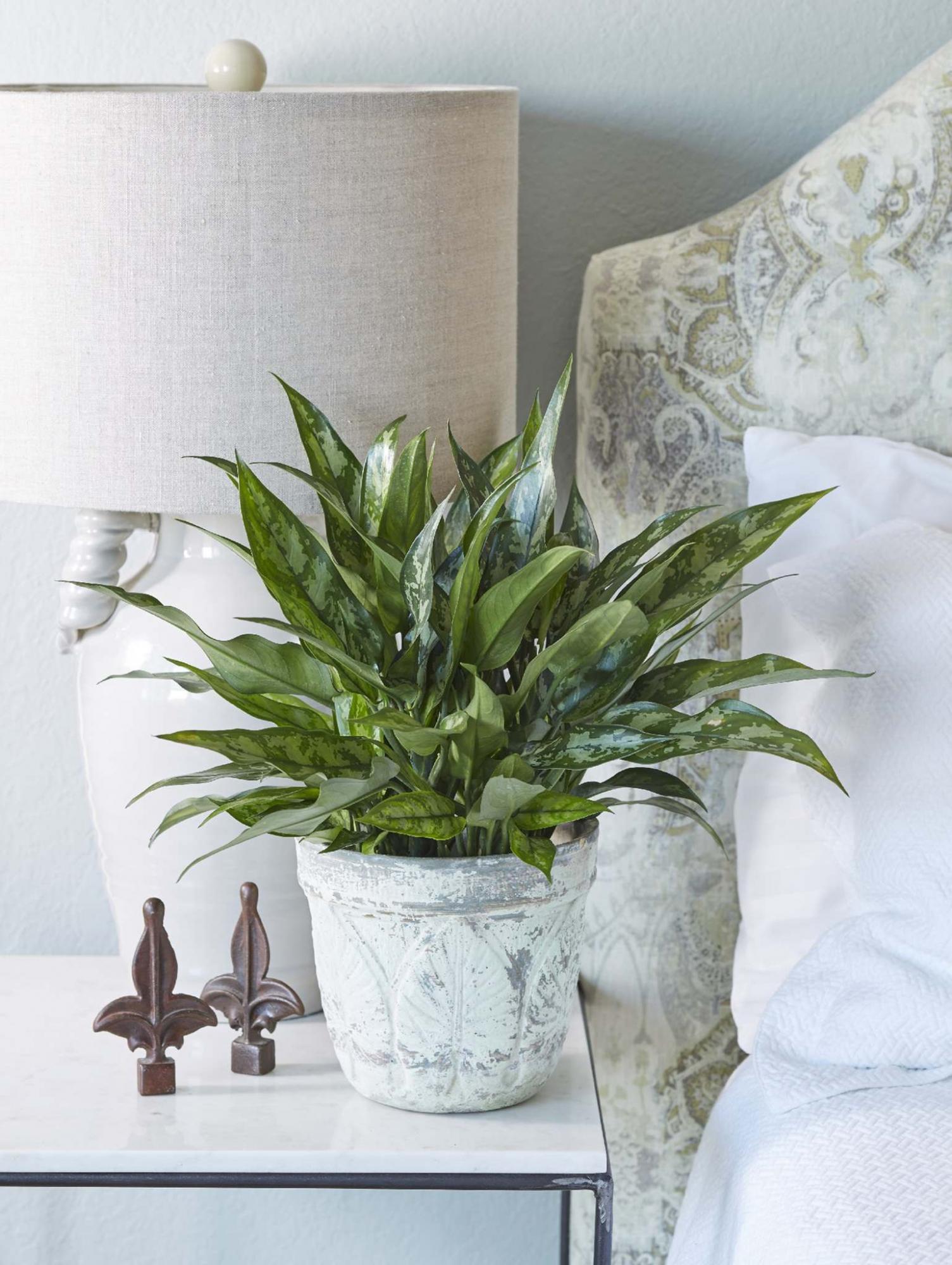
Chinese evergreen (Aglaonema) Emerald Beauty is easy to grow and fits nicely on a tabletop.
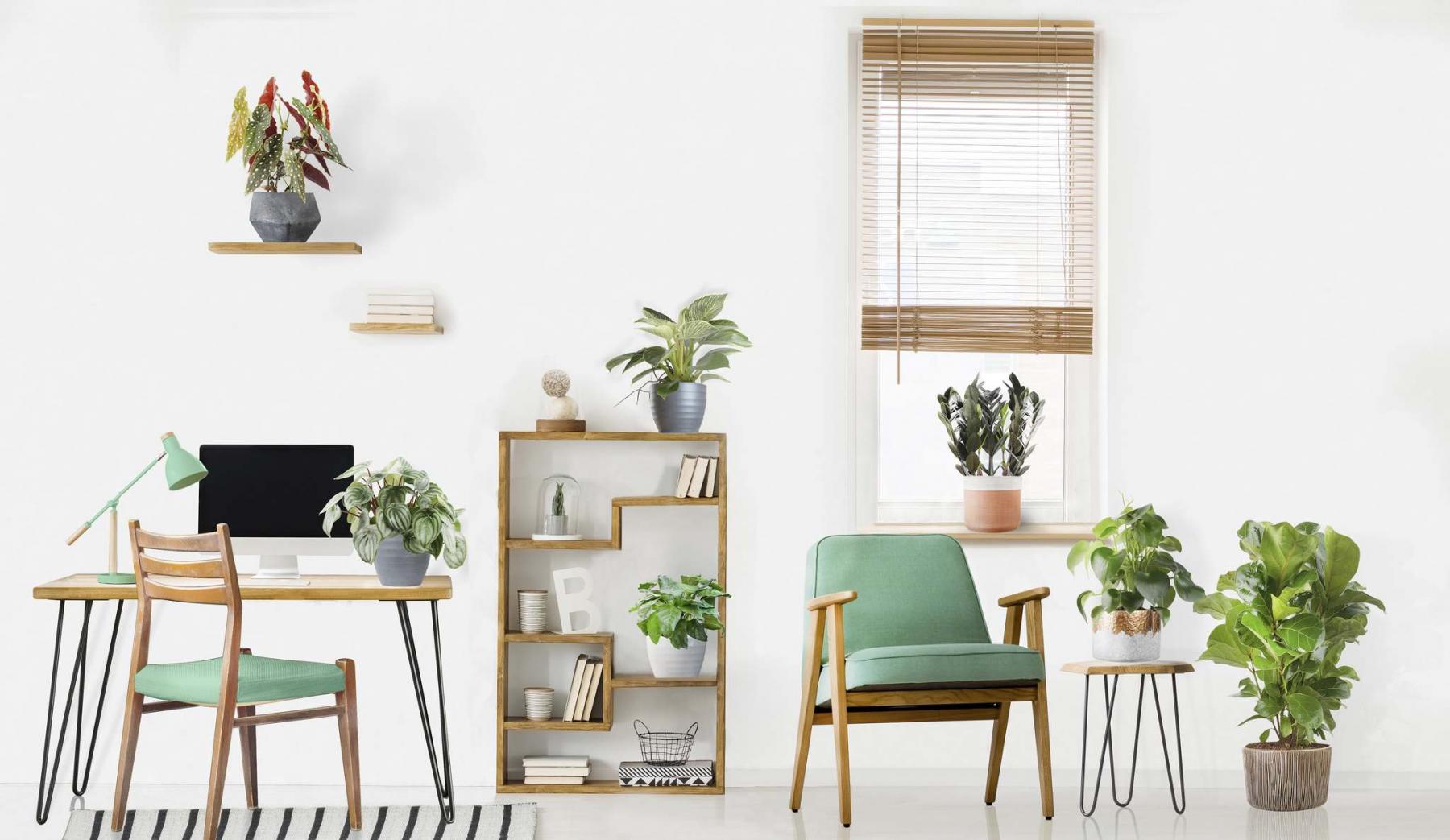
Photos by Costa Farms
Stuck at home? Indoor plants help us to relax and stay calm.
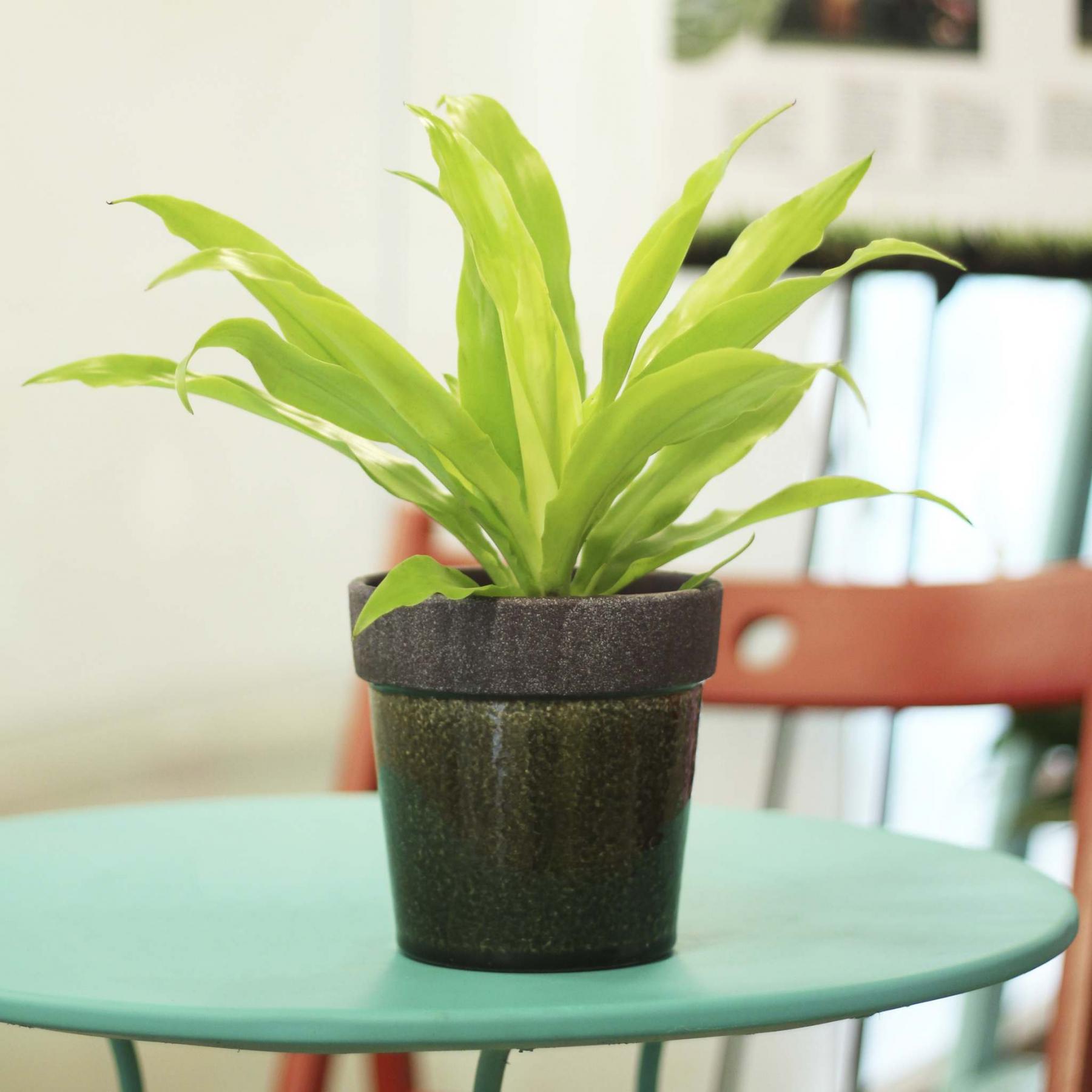
Dracaena Limelight provides a splash of colour and is from the Exotic Angel Plants collection.
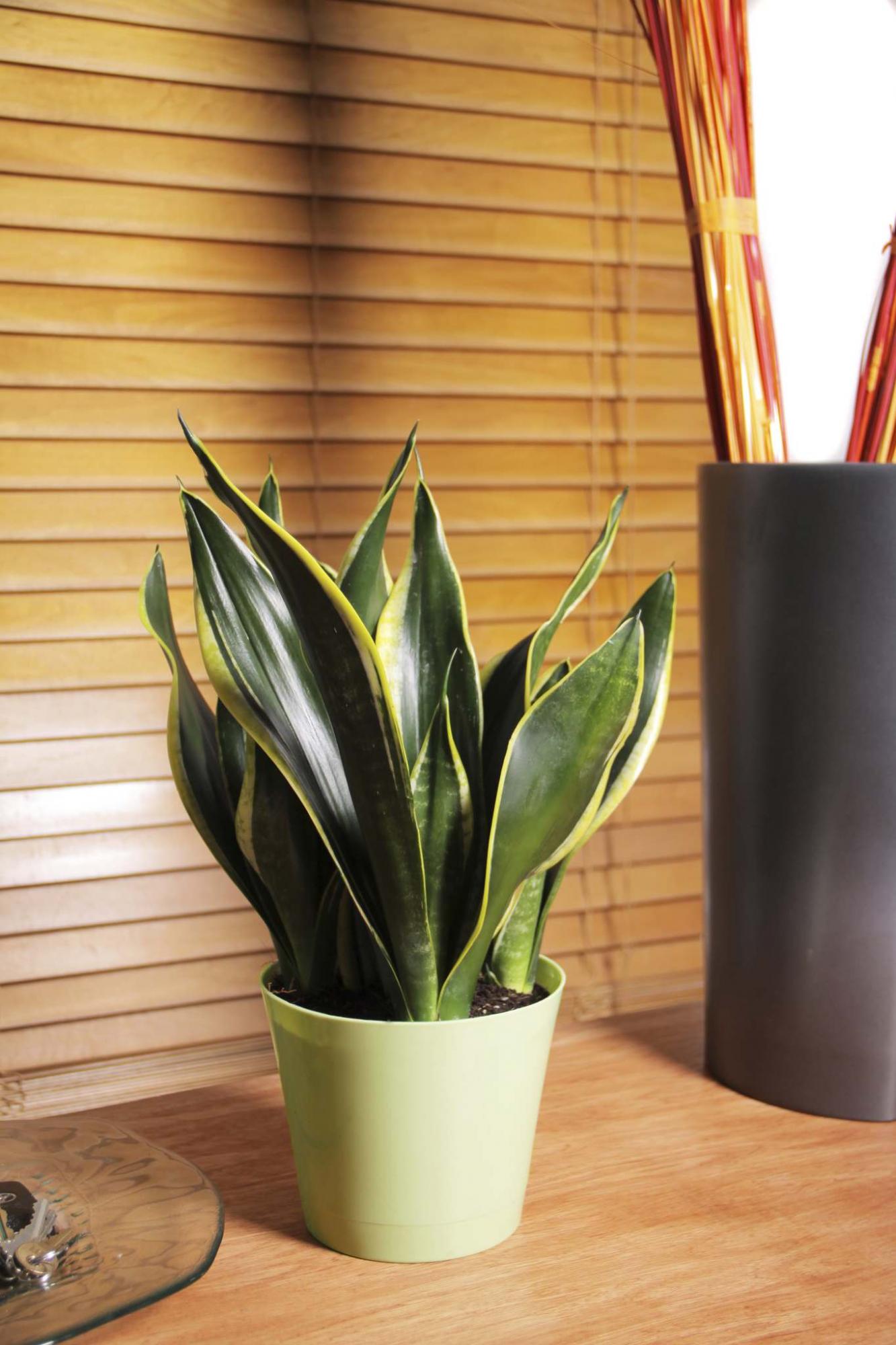
Got low light? Snake plant loves low light and bright light, too.
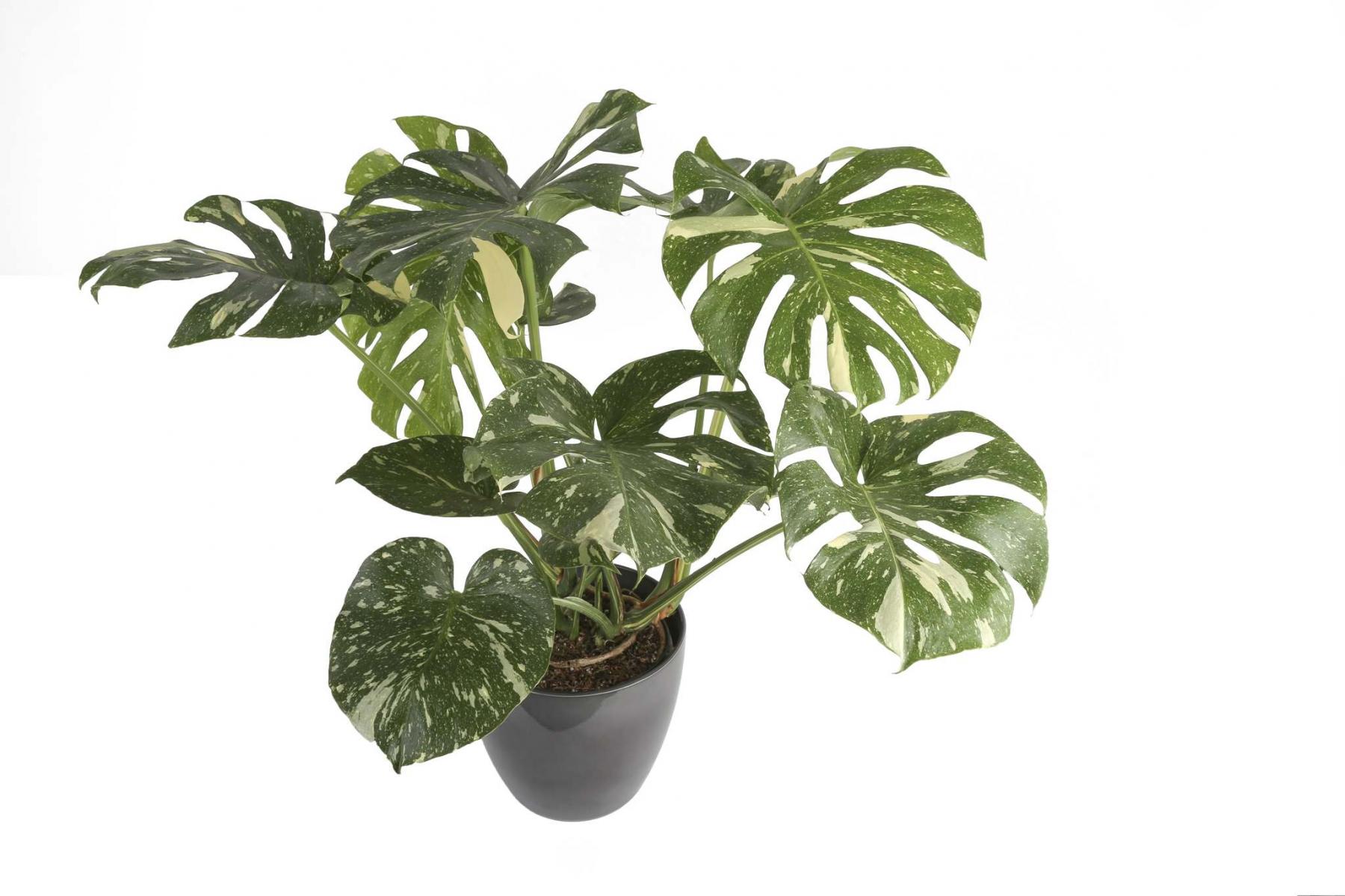
Monstera deliciosa Thai Constellation has been selected as Favourite New Foliage Plant.
At home with your indoor plants? With COVID-19 complicating daily life, our plant connections are more important than ever. Research has shown that indoor plants improve our sense of well-being by helping us to relax and stay calm.
Plants help to clean the air in our tightly sealed indoor environments by reducing air pollutants. Plants promote nurturing as any good plant parent knows. Indoor plants also help to promote productivity — invaluable for all of us who are working from home these days. In recent years, indoor plants or houseplants have spurred a near-phenomenal increase in people’s social connections through the sharing of stories and photos of their collections on social media sites including the creation of a new growth industry — plant swapping or sharing.
Houseplants play such a pivotal role today in our interior spaces that a new occupation has sprung up — plant stylist. A plant stylist is someone you hire to come into your home and spruce things up by rearranging your potted plants and creating eye-catching groupings. Of course, for now, experiment with creating your own vignettes but once things return to normal, you may decide to explore hiring a plant stylist.
Indoor plants belong to large plant families with unwieldy scientific names (many of us give our houseplants new names). Like any family, the degrees or levels of connectedness are extraordinary not only in the plant world but also in the connections between consumers and the vast horticultural industry built around plants. Houseplants, for example, can be compared to bananas — they don’t originate in our cold climate so we are reliant on imports. The supply chain spans the continent.
Costa Farms, a wholesale grower headquartered in Miami, Florida, is one of the most important sources of tropical houseplants. From its plant hunting in the remotest regions of the world to growing plants on more than 4,500 acres and introducing new plants that are then shipped to retailers across North America, this major player in the ornamental plants industry is also cultivating a direct personal link to the end consumer — you and me — through its willingness via its website to provide direct responses to concerned plant parents who have questions about caring for their plants. This valuable feedback underscores the sense of community that is associated with growing and nurturing a living plant.
Recently I talked to Mike Rimland, director of research and development of the indoor plant division at Costa Farms. Rimland is one of the world’s leading authorities on indoor plant varieties. An inveterate plant hunter, Rimland has logged more than eight million kilometres in his lifetime in search of plants. "We’re not just introducing new indoor plants," says Rimland. "We are purposely only introducing new indoor plants that are better than the ones we’ve already been selling and are easier for the end consumer to be most successful with." If customers invest in a plant and are not successful, says Rimland, they’re going to be unhappy. "People don’t want to spend money on a plant and have it die. Thriving is very different from surviving," he says. Can’t argue with that.
Every plant at Costa Farms goes through extreme testing that includes placing plants in a box in a room with air conditioning as well as closet tests. Plant varieties are ultimately tested in two locations: Rimland’s office and at his home. Rimland knows the direction of every window in his office and home including the intensity of available light whether it is low, medium or high.
Rimland says that Agloenema (pronounced agla-neema) Chinese evergreen plants are the Rolls Royce of indoor plants. Slow-growing and compact enough to fit nicely on a desk or tabletop in your family room or by your bedside, Chinese evergreen plants have an upright mounding shape and offer a wide variety of colourful foliage and intriguing patterns. Agloenema Emerald Beauty is a sophisticated variety that offers dark green leaves accented by lustrous markings of silver-gray. Exceptionally easy to grow, Chinese evergreen plants are tough beauties that can be grown in low light or bright light and incredibly, are even adaptable to occasionally haphazard watering schedules.
But if you need a plant that barely needs your attention, Snake plant (Sansevieria trifasciata) is the plant for you. Diverse varieties provide many different looks, each one handsomely architectural.
Plant collectors will love the stylish Exotic Angel Plants collection which contains more than 400 varieties that have easy adaptability. To name just one, Dracaena Limelight has beautiful, upright chartreuse leaves that provide a bold splash of colour to the indoor environment.
Costa Farms’ Monstera deliciosa Thai Constellation grown by Costa Farms was a sensation at this year’s Tropical Plant International Expo (TPIE) held in January in Fort Lauderdale, Florida. It captured the Favourite New Foliage Plant Award (Costa Farms has won this award for the fifth consecutive year).
Plant lovers are mad for Monstera plants and Thai Constellation with its unique variegation is making a huge splash across the industry. In his frequent travels to southeast Asia, Rimland has come across hundreds of Monstera plants growing in their natural habitats. The minute he saw Thai Constellation seven years ago, he knew by instinct that it was exceptional. The goal now is to ensure that Thai Constellation will be available to consumers at an accessible price, says Rimland.
There is one more vital connection between plants and people: their local garden centres. Truckloads of plants have already arrived at many of our local garden centres and are being cared for by greenhouse staff hoping to connect them with consumers. The Manitoba Nursery Landscape Association (MBNLA) has been in contact with our provincial government to understand how mandated closures could impact Manitoba’s horticultural industry. Earlier this week Guy Dowhy, president of MBNLA, said that the language in the Province’s list of critical businesses released on March 31st relating to supporting retail garden centres was unclear and he would be seeking clarification.
Provinces such as Ontario and British Columbia have recognized retail garden centres as essential businesses. A March 27th article by Kate Spirgen for Greenhouse Management reported that garden centres, greenhouses and nurseries nationwide in the U.S. have been deemed essential businesses. Most state governments are permitting green industry businesses to remain open providing they follow strict guidelines on sanitation and social distancing.
Visit the websites of Manitoba’s local retail garden centres and nurseries and you will find options for ordering plants online or by phone, details of no-contact delivery policies, options for curbside and parking lot pickup as well as expressions of gratitude for customers’ continued support.
"Our industry has always been so proactive," says Dowhy. "I don’t know if it is because we work with live plant material but we are so conscientious of general health and wellbeing that we always take whatever extra steps are needed."
MBNLA participated in a national conference call on March 13th with the Canadian Nursery Landscape Association that involved more than 50 representatives from across Canada’s horticulture industry. Creating a safe working environment is paramount, says Dowhy, and so too is maintaining the connection between people and plants. It’s personal.
colleenizacharias@gmail.com



